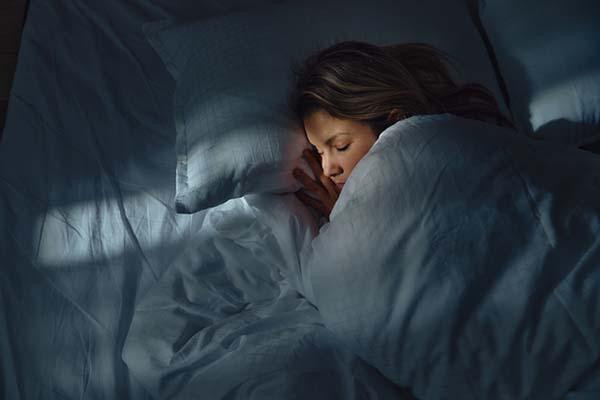Why Sleep Matters for Women
Sleep is the cornerstone of health, yet women often juggle so much—work, family, personal goals—that rest takes a backseat. I learned this the hard way during my college years, burning the midnight oil only to feel foggy and drained. This guide shares practical, science-backed tips tailored for women to achieve restorative sleep at any age.
The Science of Sleep and Women’s Health
Women’s sleep needs evolve across life stages due to hormonal shifts, from puberty to menopause. I remember my mom struggling with insomnia during her 50s, a common issue tied to menopause. Understanding these changes helps tailor sleep strategies for better health and vitality.
How Hormones Affect Sleep
Hormones like estrogen and progesterone influence sleep cycles, impacting everything from falling asleep to staying asleep. During menstruation, pregnancy, or menopause, fluctuations can cause insomnia or restlessness. Research from the National Sleep Foundation shows women are more likely than men to experience sleep disruptions.
Sleep Across Life Stages
- Teens (13–18): Need 8–10 hours; hormonal changes can delay sleep onset.
- Young Adults (18–30): Require 7–9 hours; stress and lifestyle often disrupt sleep.
- Adults (30–50): Aim for 7–8 hours; caregiving and work can reduce sleep quality.
- Older Adults (50+): Need 7–8 hours; menopause and health issues may cause insomnia.
Common Sleep Challenges for Women
Women face unique sleep hurdles, from hormonal shifts to societal pressures. I once stayed up all night worrying about a work deadline, only to realize stress was sabotaging my rest. Identifying these challenges is the first step to better sleep.
Menstrual Cycle Disruptions
PMS symptoms like cramps or mood swings can make falling asleep tough. Studies suggest 30% of women experience sleep disturbances during their cycle. A warm bath or light stretching can ease discomfort.
Pregnancy and Sleep
Pregnancy brings physical changes—back pain, frequent urination—that disrupt rest. I recall a pregnant friend swearing by her body pillow for support. Elevated progesterone levels also cause daytime fatigue, making naps tempting but tricky.
Menopause and Insomnia
Hot flashes and night sweats affect 75% of menopausal women, per the American Academy of Sleep Medicine. My aunt found relief with a cooling mattress topper. Declining estrogen levels can also fragment sleep, requiring targeted strategies.
Stress and Anxiety
Women often manage multiple roles, leading to racing thoughts at bedtime. I’ve lain awake replaying conversations, a habit cognitive behavioral techniques helped me break. Chronic stress raises cortisol, disrupting natural sleep rhythms.
Essential Sleep Tips for Women
Good sleep isn’t just about hours—it’s about quality. After years of tweaking my routine, I’ve found strategies that work across ages. Here’s how to build a sleep-friendly lifestyle.
Create a Consistent Sleep Schedule
Going to bed and waking up at the same time daily regulates your body’s internal clock. I started setting a 10 PM bedtime, and within a week, falling asleep felt easier. Even on weekends, stick within a 1-hour window to avoid “social jetlag.”
Optimize Your Sleep Environment
A dark, quiet, cool bedroom signals rest to your brain. I invested in blackout curtains after realizing streetlights were keeping me up. Aim for a room temperature of 60–67°F, as recommended by sleep experts.
Limit Screen Time Before Bed
Blue light from phones suppresses melatonin, a sleep hormone. I switched to reading a book 30 minutes before bed, and it’s been a game-changer. Use blue-light-blocking glasses or apps like f.lux if screens are unavoidable.
Practice a Relaxing Bedtime Routine
A calming pre-sleep ritual, like yoga or journaling, reduces stress. I love a 5-minute meditation to clear my mind. Avoid stimulating activities like intense workouts or heated discussions close to bedtime.
Watch Your Diet and Hydration
Heavy meals or caffeine late in the day can disrupt sleep. I learned to skip coffee after 2 PM—tough but worth it. A light snack, like a banana or almonds, can stabilize blood sugar overnight.
Tailored Tips for Different Life Stages
Sleep needs vary by age, and what works for a teen won’t always suit a menopausal woman. I’ve seen this in my family—my teenage cousin and my mom need different approaches. Here’s how to customize your strategy.
Teens and Young Adults
Teens need structure to combat late-night scrolling. Encourage a tech-free bedroom and a wind-down routine like reading. Young adults should prioritize stress management, like journaling, to quiet busy minds.
Pregnant Women
Use a body pillow to support your growing belly and reduce back pain. Elevate your head slightly to ease heartburn, a tip my pregnant friend swore by. Short naps (20–30 minutes) can help without disrupting nighttime sleep.
Menopausal Women
Cooling bedding, like bamboo sheets, combats night sweats. I recommended this to my mom, and she sleeps better now. Consider low-dose melatonin supplements, but consult a doctor first.
Older Adults
Maintain physical activity, like walking, to promote deeper sleep. Avoid long naps, which can fragment nighttime rest. My grandma stays active with gardening, and it’s improved her sleep quality.
Comparison: Sleep Aids vs. Natural Methods
| Method | Pros | Cons |
|---|---|---|
| Sleep Aids | Quick relief, effective for insomnia | Risk of dependency, side effects |
| Natural Methods | Sustainable, no side effects | Slower results, requires routine |
Pros and Cons of Focusing on Sleep Health
Pros
- Improved Mood: Better sleep reduces anxiety and irritability.
- Enhanced Productivity: Rest boosts focus and energy, as I noticed after fixing my sleep schedule.
- Health Benefits: Lowers risk of heart disease, diabetes, and obesity.
Cons
- Time Commitment: Building a routine takes effort and consistency.
- Initial Costs: Quality bedding or supplements can be pricey.
- Lifestyle Adjustments: Cutting caffeine or screens requires discipline.
Tools and Resources for Better Sleep
Investing in the right tools can transform your sleep. I splurged on a weighted blanket last year, and it’s like a nightly hug. Here’s what to consider.
Sleep Products
- Weighted Blanket: Promotes calm; try brands like Gravity Blanket.
- White Noise Machine: Masks disruptive sounds; available at Amazon.
- Cooling Mattress Topper: Ideal for menopausal women; check Tempur-Pedic.
Apps for Sleep Tracking
- Sleep Cycle: Tracks sleep patterns and wake-up times.
- Calm: Offers guided meditations and sleep stories.
- Fitbit: Monitors sleep stages with wearable devices.
Where to Find Sleep Experts
Consult a sleep specialist via American Academy of Sleep Medicine or local clinics for personalized advice.
Common Mistakes to Avoid
Sleep mistakes are easy to make—I’ve been guilty of a few. Here’s how to steer clear of pitfalls that sabotage rest.
- Inconsistent Bedtimes: Varying sleep schedules disrupt your circadian rhythm.
- Overusing Sleep Aids: Pills can lead to dependency; use them sparingly.
- Ignoring Stress: Unaddressed anxiety keeps you awake; try mindfulness techniques.
- Poor Sleep Hygiene: Cluttered bedrooms or bright lights hinder relaxation.
People Also Ask (PAA) Section
Why do women have trouble sleeping?
Hormonal changes, stress, and life stages like pregnancy or menopause often disrupt women’s sleep, causing insomnia or restlessness.
How much sleep do women need?
Most women need 7–9 hours nightly, though teens require 8–10 hours, and older adults may function well on 7–8 hours.
Can menopause affect sleep quality?
Yes, menopause causes hot flashes and night sweats, disrupting sleep for up to 75% of women, per sleep studies.
What’s the best way to improve sleep naturally?
Create a consistent bedtime routine, limit screens, and optimize your sleep environment with dark, cool conditions.
Lifestyle Habits to Boost Sleep
Small changes in daily habits can lead to big sleep improvements. I started drinking chamomile tea nightly, and it’s become my go-to ritual. Here are key habits to adopt.
Exercise Regularly
Moderate exercise, like a 30-minute walk, promotes deeper sleep. Avoid intense workouts within 3 hours of bedtime to prevent overstimulation. My morning yoga routine has noticeably improved my rest.
Manage Stress
Techniques like deep breathing or journaling reduce cortisol levels. I write down three things I’m grateful for each night—it’s surprisingly calming. Apps like Headspace offer guided relaxation.
Limit Alcohol and Caffeine
Alcohol may help you fall asleep but disrupts REM sleep. Caffeine lingers in your system for hours, so skip it after noon. I switched to herbal tea, and my sleep improved within days.
FAQ Section
How can women improve sleep during pregnancy?
Use a body pillow, take short naps, and avoid heavy meals at night to ease discomfort and promote rest.
What’s the best sleep environment for women?
A dark, cool (60–67°F), quiet bedroom with comfortable bedding and minimal electronics creates ideal sleep conditions.
Are sleep supplements safe for women?
Melatonin or magnesium can help, but consult a doctor to avoid interactions or dependency, especially during pregnancy.
How does stress affect women’s sleep?
Stress raises cortisol, making it hard to fall or stay asleep. Mindfulness or journaling can help manage it.
Where can I buy sleep-friendly bedding?
Retailers like Amazon, Target, or Brooklinen offer cooling sheets and weighted blankets.
Conclusion
Healthy sleep is a game-changer for women, from teens navigating puberty to older adults managing menopause. By building a consistent routine, optimizing your environment, and addressing life-stage challenges, you can unlock restful nights. I’ve seen the difference a good night’s sleep makes in my own life—more energy, better mood, and a clearer mind. Start with one tip tonight, and watch your sleep transform.


